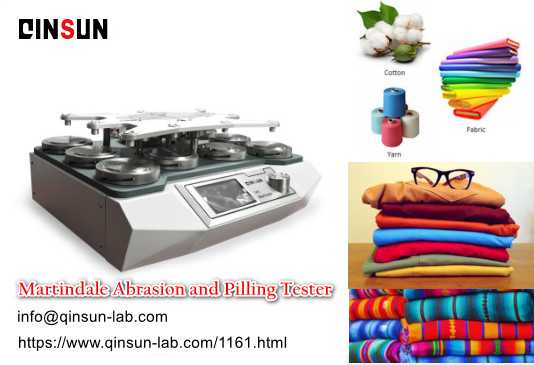Site: Home > News and events 

premier textile testing instruments testing overview and testing items
Textile testing means that textile testing instruments use physical and chemical methods to conduct qualitative or quantitative inspections to test the quality and performance of textiles in accordance with relevant standards, and to make a test report.
1. Overview of textile testing
Quality: refers to the sum of characteristics that reflect the entity's ability to meet explicit and implicit needs. Regarding the most important performance and function of textiles in use, it should fully meet the requirements of users and consumers as the ultimate goal.
Performance: Refers to the requirements of the comprehensive customer and society and the functions specified for the product, which can be divided into two aspects: use performance and appearance performance. Refers to textile specifications and technical requirements, aesthetics, applicability, reliability, safety, environment and service life, etc.
Textile physical inspection: refers to the use of various instruments, meters, equipment, measuring tools and other testing methods to measure or compare the data of the physical properties or physical quantities of various textile products, and systematically organize and analyze them to determine the physical properties and quality of textiles. A method of inspection.
Textile chemical inspection: Refers to an inspection method that uses chemical inspection technology and equipment to analyze and test selected textile samples to determine the chemical characteristics, chemical composition and content of textiles.

2. The inspection items of premier textile testing instruments
2. 1. Dimensional changes and related tests: dimensional stability of washing machine washing, dimensional stability of hand washing, dimensional stability of dry cleaning, dimensional stability of steam.
2. 2. Color fastness: color fastness to soaping (sample), color fastness to rubbing, color fastness to chlorine water, color fastness to non-chlorine bleaching, color fastness to dry cleaning, color fastness to actual washing (clothes, fabrics) ), color fastness to perspiration, color fastness to water, color fastness to light, color fastness to sea water, color fastness to saliva.
2. 3. Component yarn testing: cotton, linen, wool (sheep, rabbit), silk, polyester, viscose, spandex, nylon, velvet content, fabric composition and content, yarn twist, etc.;
2. 4. Physical performance test: density, yarn count, weight, yarn twist, yarn strength, fabric structure, fabric thickness, loop length, fabric coverage factor, fabric shrinkage or weaving rate, bending deformation, tensile strength , Tear strength, seam slippage, seam strength, bonding strength, single yarn strength, yarn strength per linear density, anti-hooking, crease recovery angle test, stiffness test, water repellency test, leak proof Performance, elasticity and recovery, breathability, water vapor permeability, general ready-to-wear flammability, children’s evening wear flammability, burst strength, abrasion resistance test, pilling resistance, etc.
2. 5. Chemical performance analysis: PH content, formaldehyde content, lead content, azo dye test, heavy metal content test, water absorption, moisture content, peculiar smell, mercerizing effect of cotton, hot pressing, dry heat, storage sublimation, acid spot , Alkali spots, water spots, phenolic yellowing, etc.
2. 6. Ecological textile control items: banned azo dyes, carcinogenic dyes, allergenic dyes, extractable heavy metals, pentachlorophenol, organochlorobenzene and chlorotoluene, free formaldehyde, organotin compounds, prohibition of phthalate esters Plasticizer, insecticide, hexavalent chromium, nickel release, total lead, total cadmium, pH value, color fastness, etc.!
The quality standards of Qinsun testers are in line with international standards, providing customers with reliable textile inspection PDF reports!
2021-09-09 11:08
